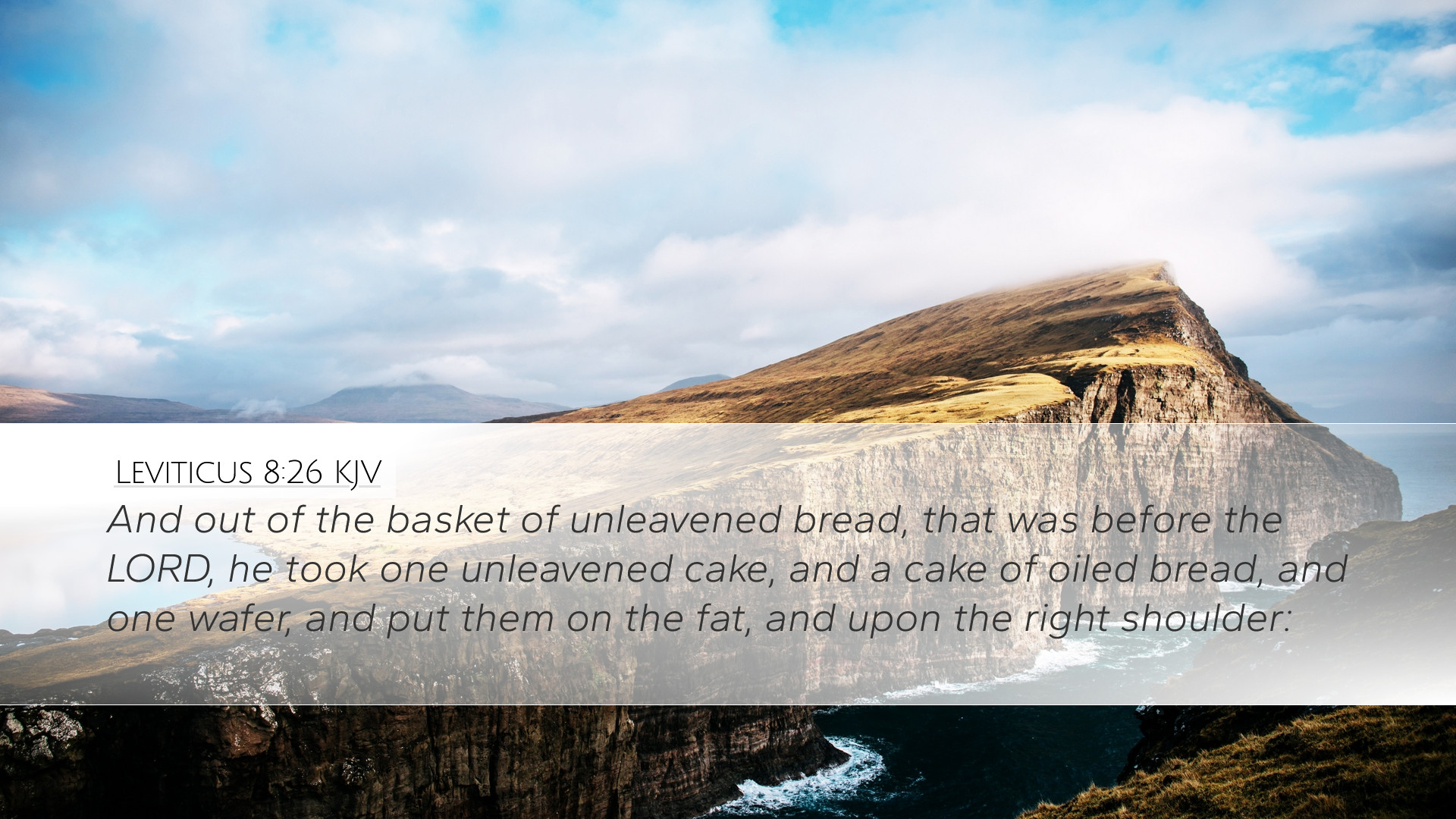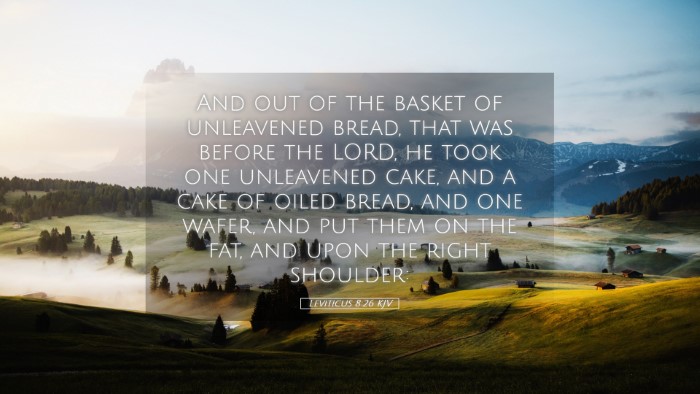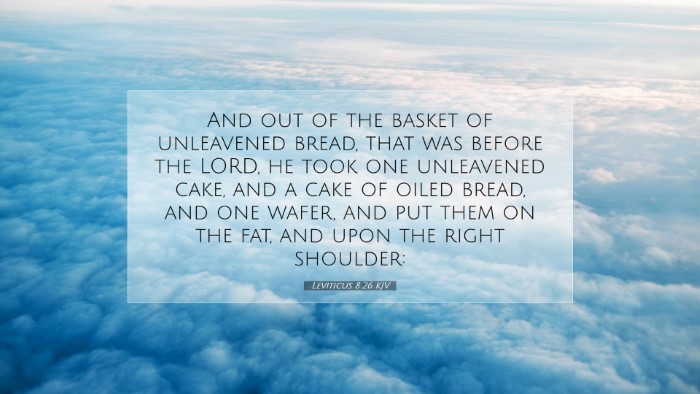Commentary on Leviticus 8:26
Leviticus 8:26 states: “And the rest of the oil that is in the priest's hand he shall put upon the head of Aaron, and anoint him, to sanctify him.” This verse occurs amidst the detailed procedures for the consecration of Aaron and his sons to their priestly office. It holds significant theological and ritual importance as it lays the foundation for understanding the priesthood in Israel.
Contextual Background
The Book of Leviticus serves as a manual for the Levitical priests and the people of Israel, detailing laws regarding sacrifices, rituals, and practices essential for holiness and worship. The context of this verse falls within the narrative of the ordination of Aaron and his sons, which is a pivotal event in the establishment of the priestly system ordained by God.
The Anointing Oil
- Symbolism of Oil: Anointing oil in the Old Testament is rich in symbolism, representing the Holy Spirit’s empowerment and presence. As noted by Adam Clarke, the act of anointing signifies the giver's favor and acceptance.
- Consecration: The application of oil reflects a setting apart for a sacred purpose. It is an external indication of an internal reality, illustrating that Aaron is entirely consecrated to God’s service (Matthew Henry).
Significance of Aaron's Anointing
This act is not merely ceremonial; it represents a divine selection. Albert Barnes elaborates on the significance of Aaron and his sons’ anointing, emphasizing that they were marked as mediators between God and the people of Israel. This underscores the gravity of the priestly role in facilitating worship and reconciliation.
Dimensions of Holiness
- Holiness of God: The anointing emphasizes the holiness of God that is to be reflected in the lives of His priests. The careful specification of rituals highlights that God's holiness demands a response from His chosen servants.
- Holiness of the Priesthood: Aaron’s sanctification signifies the need for purity and dedication in those who approach God on behalf of others. This sets a precedent for the expectation of holiness among Israel’s leaders (Matthew Henry).
Practical and Theological Implications
For pastors and theologians, this verse encapsulates essential truths regarding spiritual leadership and consecration. The anointing of Aaron challenges modern church leaders to reflect on their own calling and service:
- Divine Calling: Just as Aaron was divinely chosen and anointed, contemporary church leaders must understand their call as a sacred and divine mission.
- Empowerment by the Holy Spirit: The act of anointing foreshadows the empowerment of believers through the Holy Spirit. It serves as a reminder of the necessity of reliance on God's strength for effective ministry.
- Community of Faith: Aaron's anointing represents the priesthood of all believers. Leaders are called not only to serve themselves but to lead the wider community of faith into a deeper relationship with God.
Conclusion
Leviticus 8:26 thus holds profound implications for our understanding of the priestly role in both historical and contemporary contexts. It is a call to holiness, empowerment for service, and a reminder of the sacred duties entrusted to those who lead in worship. The unity of the anointed—Aaron, his sons, and the symbolism of the oil—allows us to appreciate the depth of God’s call to His people as a royal priesthood (1 Peter 2:9).


